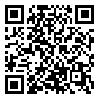BibTeX | RIS | EndNote | Medlars | ProCite | Reference Manager | RefWorks
Send citation to:
URL: http://rjms.iums.ac.ir/article-1-2766-en.html
Background: Undesirable
work situations (such as awkward postures) can result in health issues such as
musculoskeletal disorders in addition to reduced productivity and efficiency.
The main purpose of this study was to determine the effect of these awkward
postures on attention task performance.
Methods: Hence by
designing two different simulated work stations, subjects were asked to
complete a relatively complicated cognitive task on a 1 hour experimental
session. RULA analytical method was used to evaluate the working postures. A
series of mathematical tests was used as a fatigue manipulation tool. Moreover
a subjective assessment was conducted by questionnaire.
Results: RULA score showed a significant
difference between groups (p< 0.001). This difference showed that subjects
in awkward posture reported more mental (p= 0.002) and physical fatigue (p=
0.023) than the standard posture group. The results also showed that awkward
posture is related to impaired selective attention (p= 0.028) and a poor
difference in the simple reaction time (p=0.050) was observed between the
groups.
Conclusions: This study
supports the theory that physical workload can interfere with cognitive
performance in a concomitant mental activity.
| Rights and permissions | |
 |
This work is licensed under a Creative Commons Attribution-NonCommercial 4.0 International License. |





